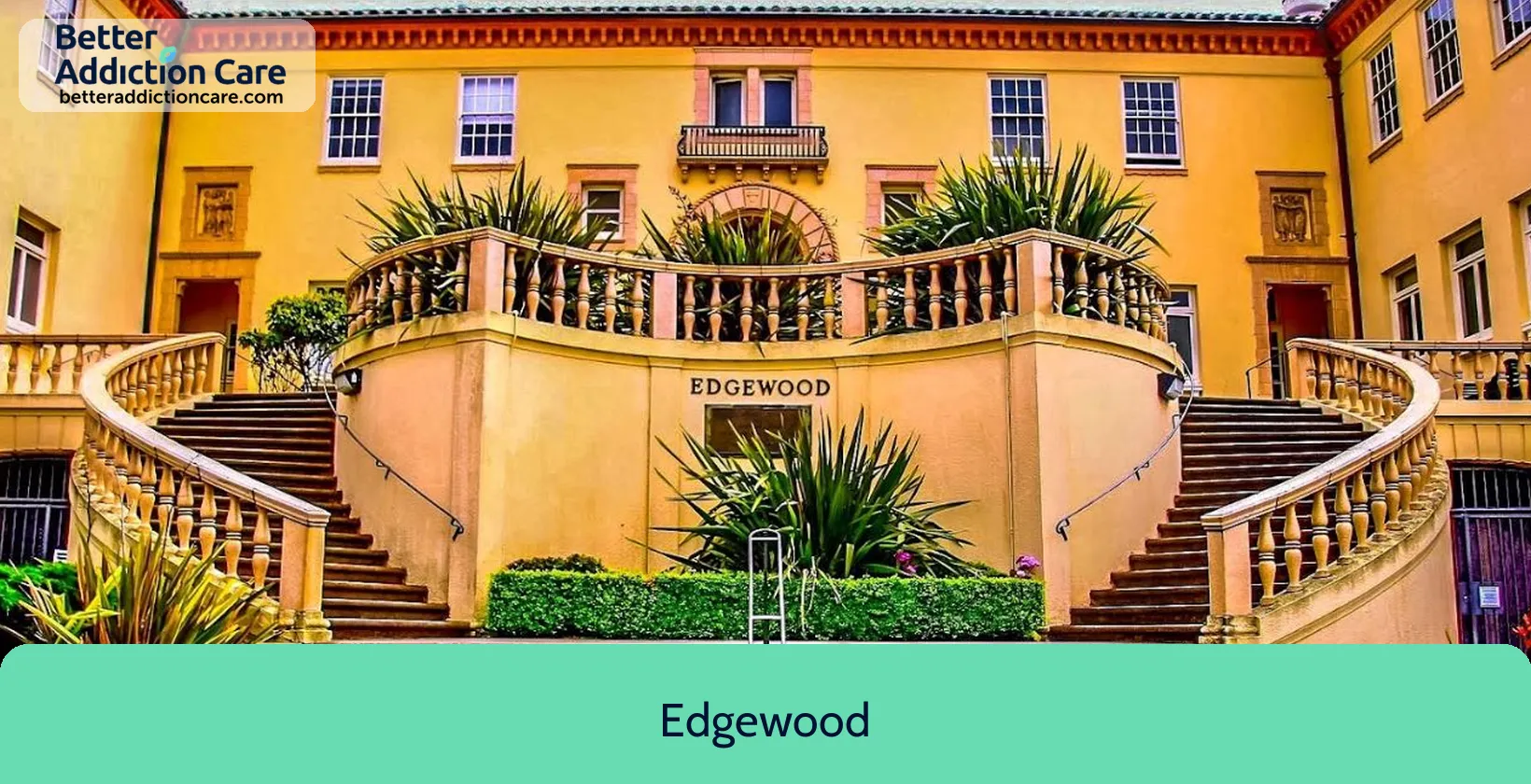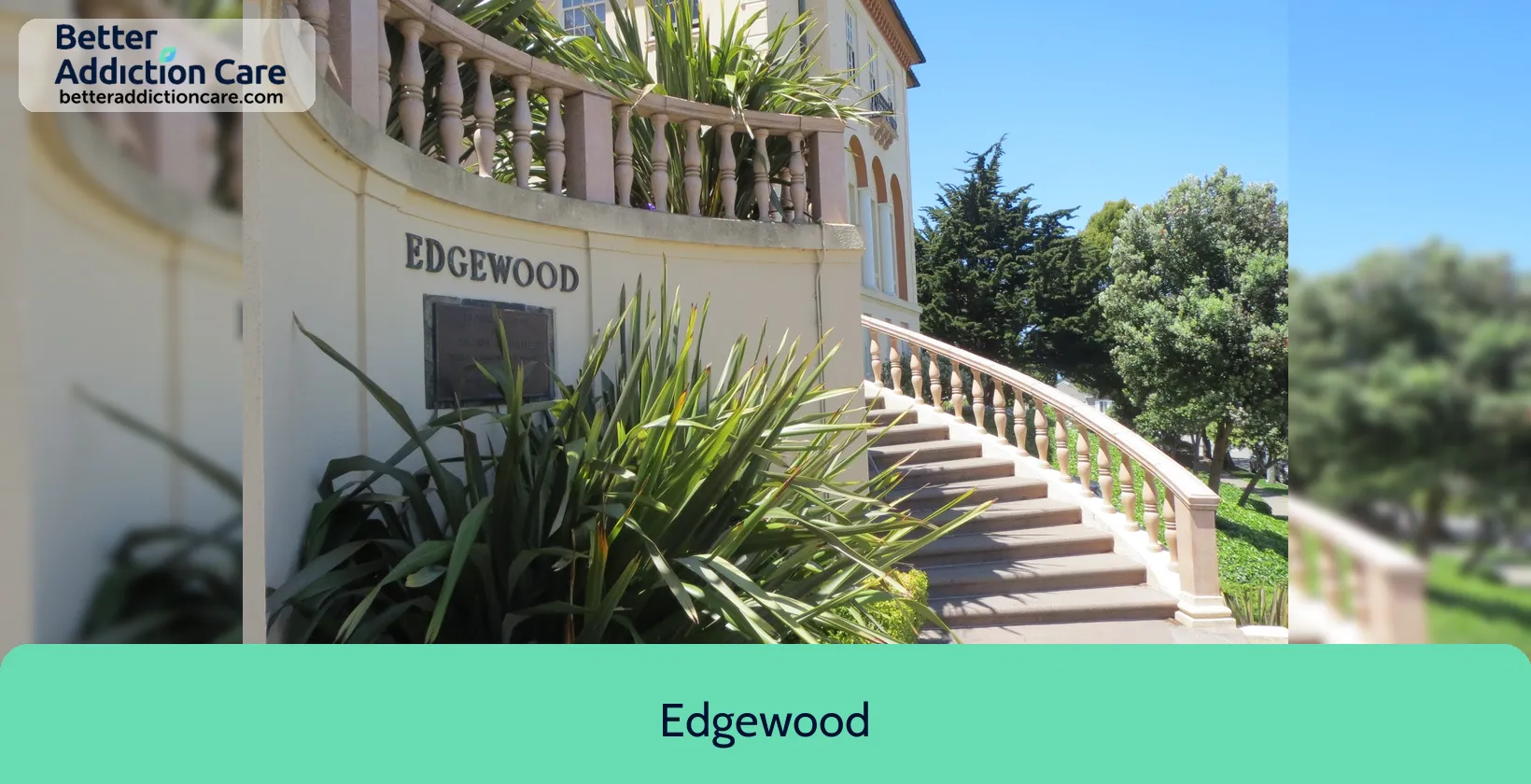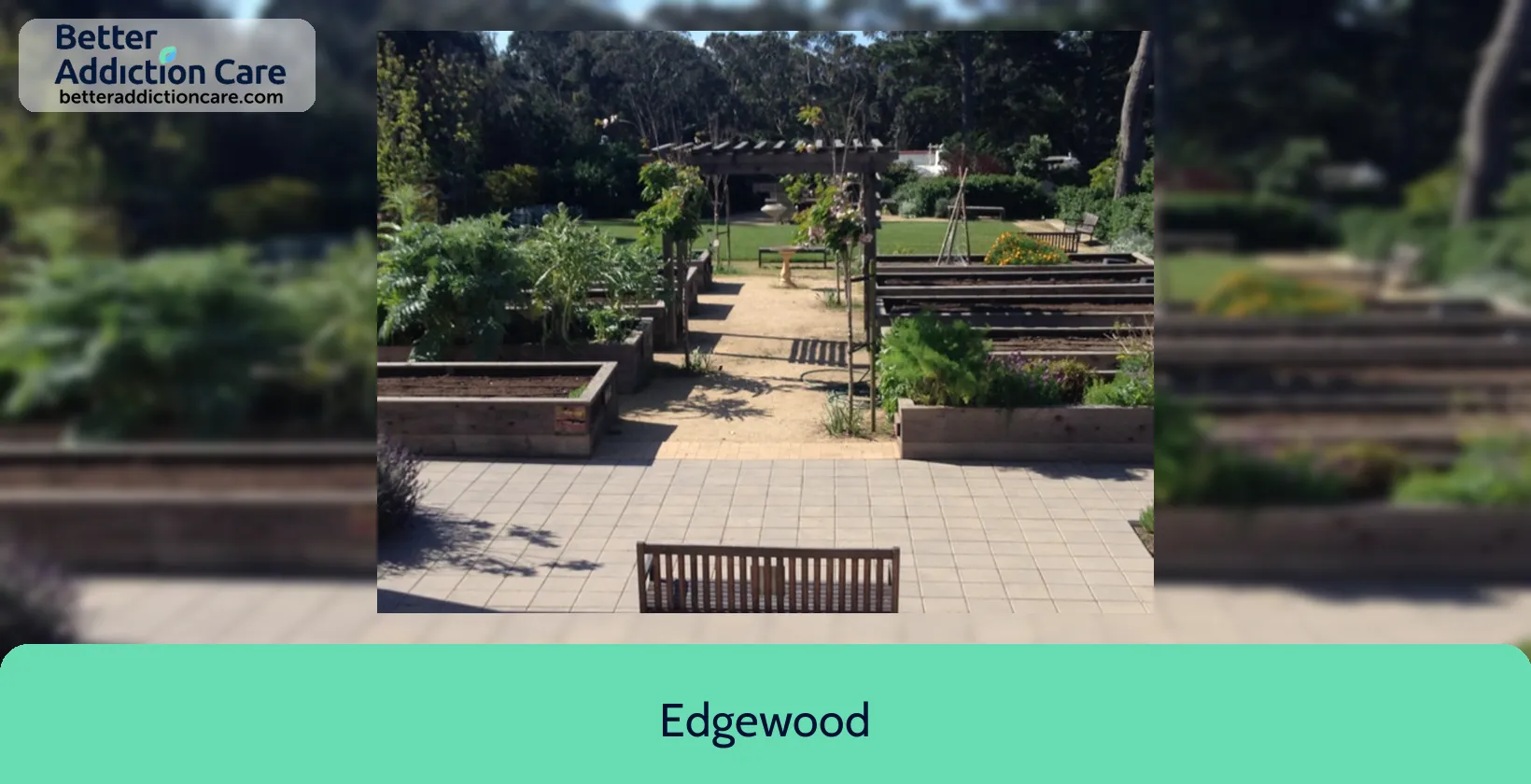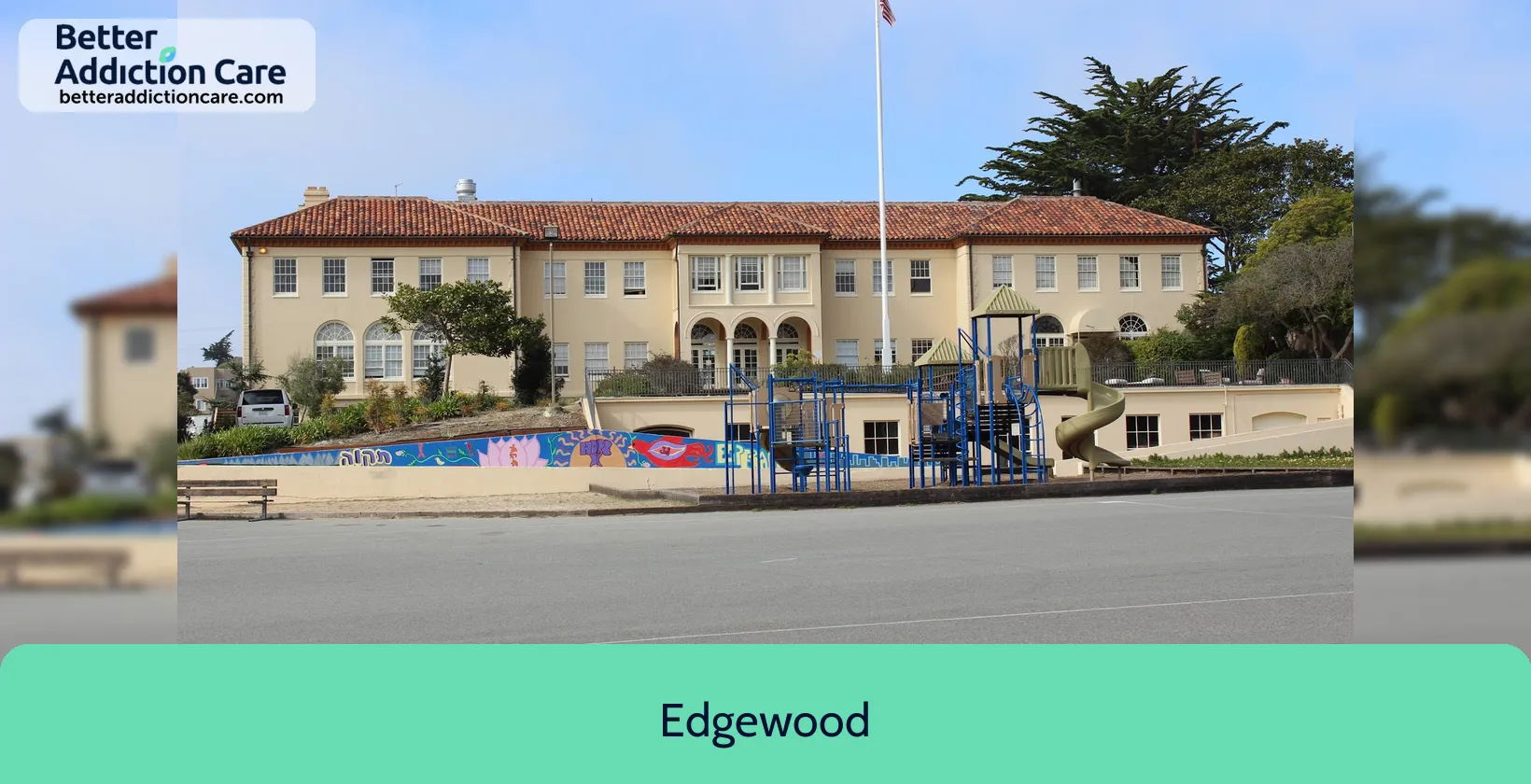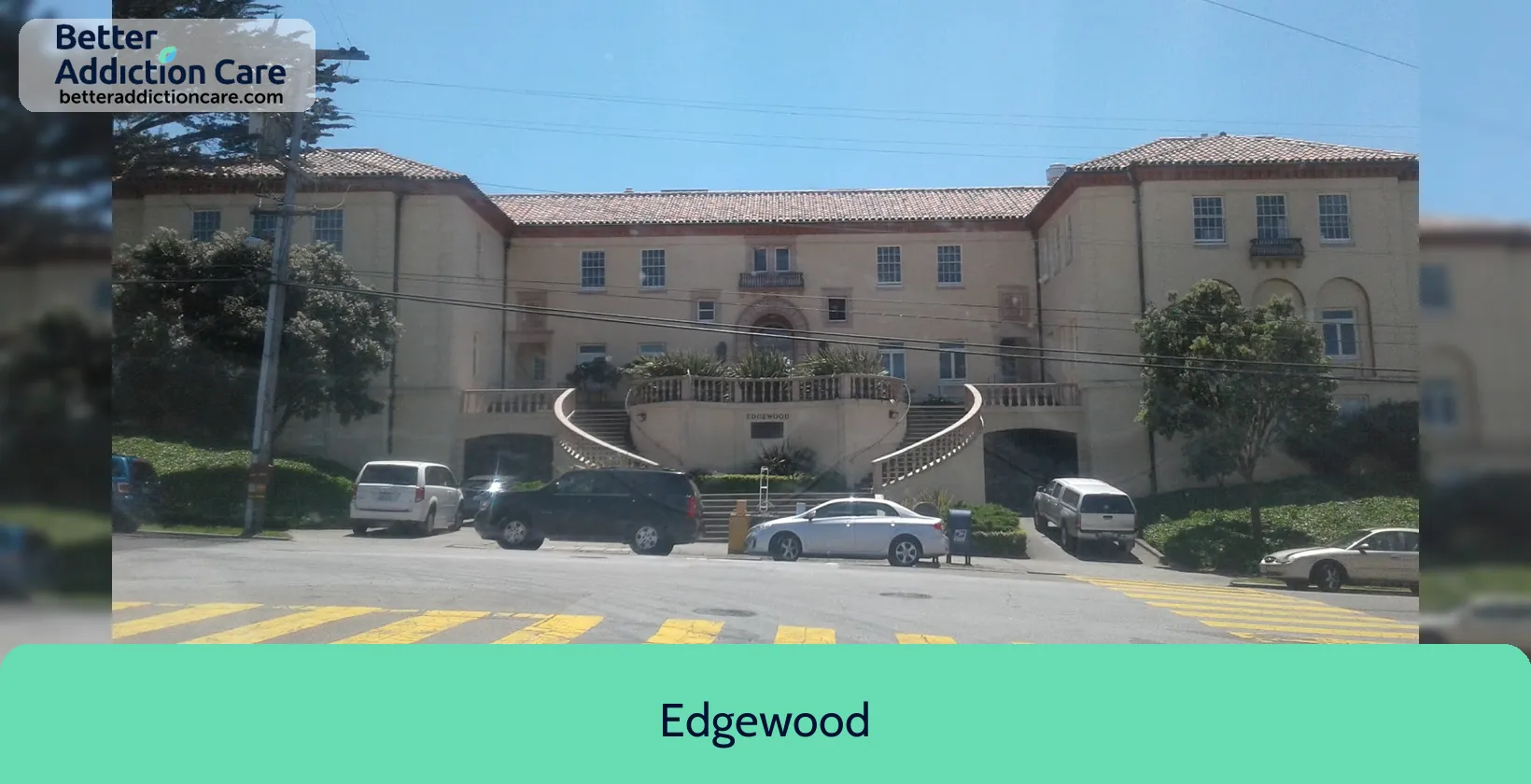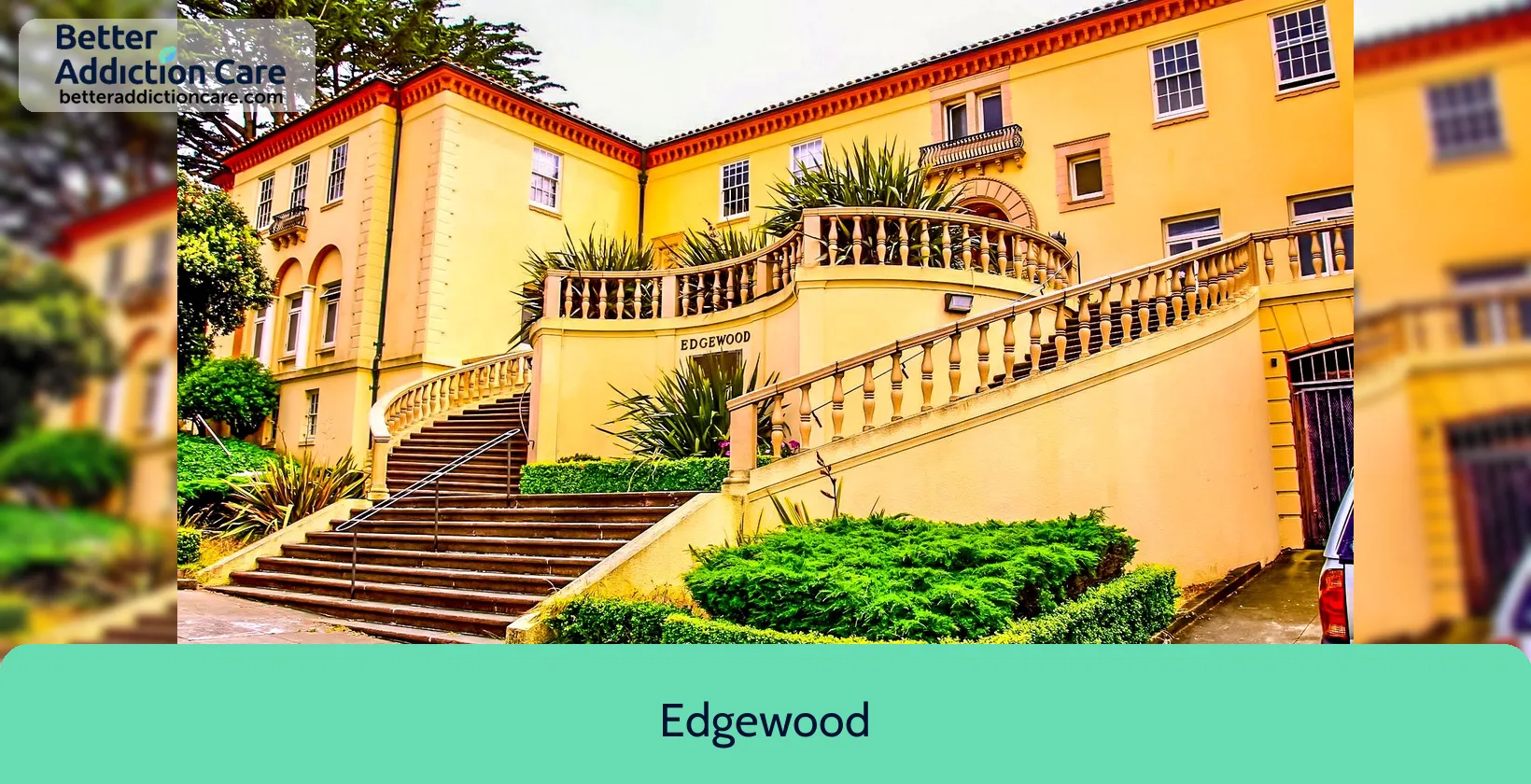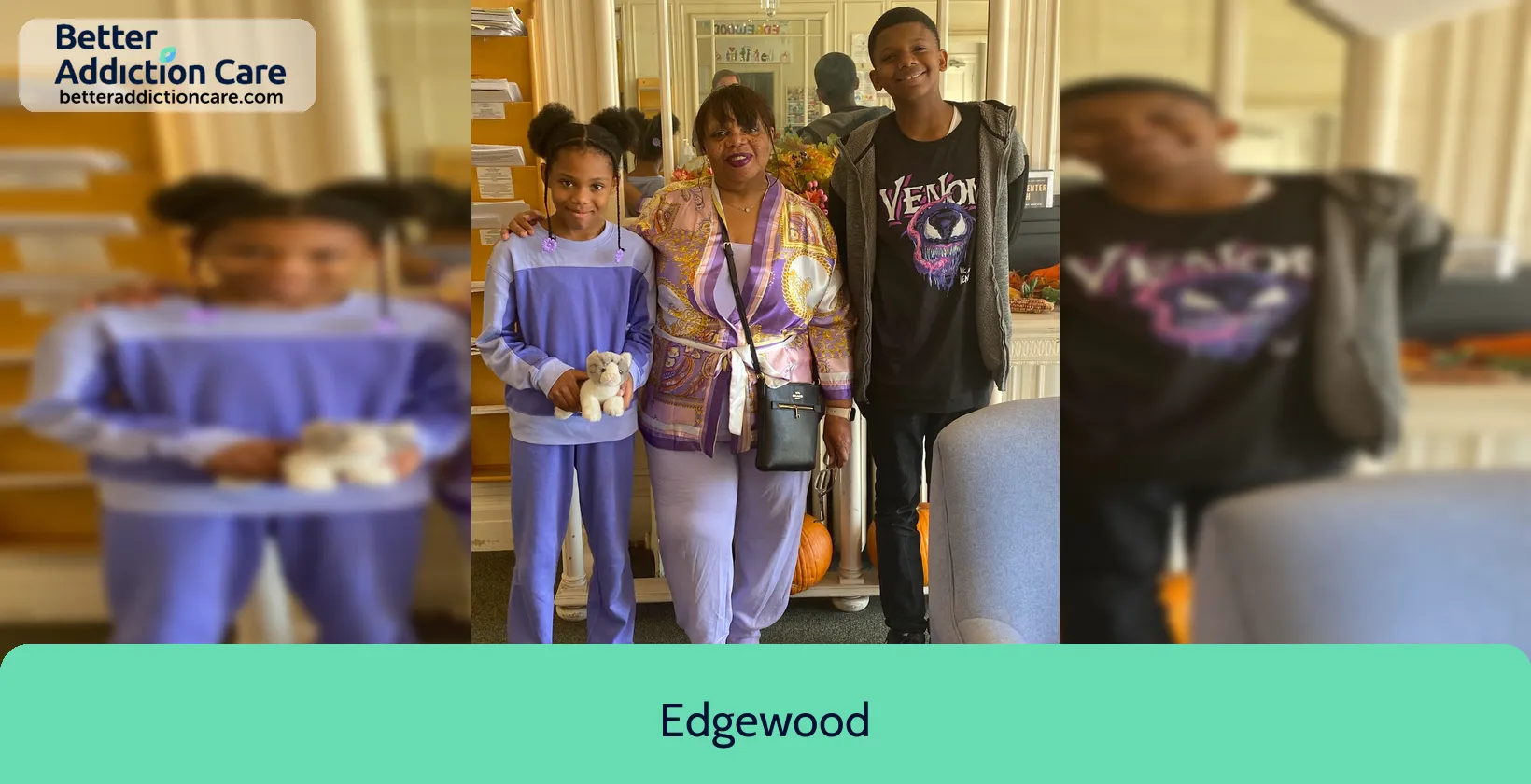Edgewood
Overview
Edgewood is a mental health treatment center for people seeking treatment near San Francisco County. As part of their treatment modalities for recovery, Edgewood provides family counseling, individual psychotherapy, and cognitive behavioral therapy during treatment. Edgewood is located in San Francisco, California, accepting county or local government funds for treatment.
Edgewood at a Glance
Payment Options
- County or local government funds
- Community Mental Health Block Grants
- Medicaid
- Other State funds
- Private health insurance
Assessments
- Comprehensive mental health assessment
Age Groups
- Children/adolescents
Operation
- Private non-profit organization
Highlights About Edgewood
6.93/10
With an overall rating of 6.93/10, this facility has following balanced range of services. Alcohol Rehabilitation: 8.00/10, Drug Rehab and Detox: 6.00/10, Insurance and Payments: 6.27/10, Treatment Options: 7.46/10.-
Alcohol Rehabilitation 8.00
-
Treatment Options 7.46
-
Insurance and Payments 6.27
-
Drug Rehab and Detox 6.00
Accreditations
The Joint Commission:

The Joint Commission accreditation for addiction and behavioral health signifies that a facility has met rigorous standards in patient care, treatment, and safety. This recognition assures patients and professionals of the facility's commitment to providing high-quality, evidence-based care in the fields of addiction and behavioral health, fostering trust and confidence in their services.
Effective date: 05/29/2015
Registration: 533672
Treatment At Edgewood
Treatment Conditions
- Mental health treatment
Care Levels
- Intensive outpatient treatment
- Aftercare
- Outpatient
- Hospital inpatient treatment
Treatment Modalities
- Family counseling
- Individual psychotherapy
- Cognitive Behavioral Therapy
- Dialectical Behavior Therapy
- Group counseling
Ancillary Services
Languages
- Spanish
Special Programs
- Children/adolescents with serious emotional disturbance (SED)
- Clients who have experienced trauma
- Persons 18 and older with serious mental illness (SMI)
Get Help Now
Common Questions About Edgewood
Contact Information
Other Facilities in San Francisco

6.74

6.85

6.68

6.74

6.50

6.77

6.93

6.68
DISCLAIMER: The facility name, logo and brand are the property and registered trademarks of Project ADAPT - Asian American Recovery Services, and are being used for identification and informational purposes only. Use of these names, logos and brands shall not imply endorsement. BetterAddictionCare.com is not affiliated with or sponsored by Project ADAPT - Asian American Recovery Services.
